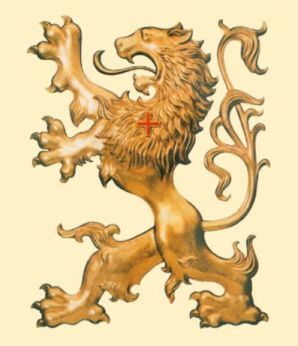|
Plinio Corrêa de Oliveira
The "Cunning of the Serpent"
|
|
|
Let us begin with the virtue of astuteness or, in other words, the evangelical virtue of serpentine cunning. Our Lord insistently recommends prudence in countless instances, inculcating in the faithful that they should not have a blind and dangerous candor but their kindness should coexist with a lively and diligent love of the gifts of God; so lively and diligent that the faithful can recognize, despite a thousand false guises, enemies wishing to rob them. Let us examine a passage: Beware of false prophets, who come to you in the clothing of sheep, but inwardly they are ravening wolves. By their fruits you shall know them. Do men gather grapes of thorns, or figs of thistles? Even so every good tree bringeth forth good fruit, and the evil tree bringeth forth evil fruit. A good tree cannot bring forth evil fruit, neither can an evil tree bring forth good fruit. Every tree that bringeth not forth good fruit, shall be cut down, and shall be cast into the fire. Wherefore by their fruits you shall know them. (4) This passage is a small treatise on shrewdness. It begins by affirming that we must face not only overt enemies but also false friends, and that our eyes should therefore be vigilant not only against wolves approaching openly but also mindful of sheep to see whether under the white wool we might find the russet, poorly disguised coat of some cunning wolf. This means a Catholic must have an agile and penetrating mind, always on guard against appearances, and only surrender his trust to one who proves, after meticulous and shrewd examination, to be an authentic sheep. But how can we discern a false sheep from a true sheep? "By their fruit the false prophets will be recognized." Our Lord thus affirms that we must have the habit of analyzing attentively the doctrines and actions of our neighbor so as to know his fruits according to their true value and take precautions against them when they are bad. This obligation is important to all the faithful, duty-bound as we are to reject false doctrines and seductions by friends who would lure us to evil or keep us in mediocrity. This duty is much graver for Catholic Action leaders, who have a much greater obligation to watch for themselves and for others and, through their astuteness and vigilance, to make sure that men possibly affiliated with doctrines or sects hostile to the Church are not allowed to remain among the faithful nor climb to posts of great responsibility. Woe to the leaders whose erroneous sense of candidness deadens the constant exercise of vigilance around themselves! They will lose a greater number of souls by their negligence than do many open enemies of Catholicism. Being in charge, under the direction of the hierarchy, of multiplying the talents, that is, the souls in the ranks of Catholic Action, they would not only bury the treasure but also allow it, by their "good faith," to fall into the hands of thieves. If Our Lord was so severe with the servant who did not make the talent yield fruit, what would He do to one who was asleep when the thief came in? Let us go on to another passage. Behold I send you as sheep in the midst of wolves. Be ye therefore wise as serpents and simple as doves. But beware of men. For they will deliver you up in councils and they will scourge you in their synagogues. And you shall be brought before governors and before kings for my sake, for a testimony to them and to the Gentiles. (5) In general, this passage is believed to be a warning applicable only in times of open religious persecution, as it refers only to summons to tribunals, governors and kings and to scourging in synagogues. But keeping in mind what is happening in the world, it would be opportune to ask if there is any one country, nowadays, where we can rest assured this situation will not develop from one moment to the next. At any rate, it would also be an error to suppose that Our Lord only recommends great prudence before manifest and serious danger and that as a habit a leader of Catholic Action can conveniently renounce the cunning of the serpent and cultivate only the simplicity of the dove. Indeed, whenever the salvation of a soul is at stake an infinite value is at stake, because the blood of Jesus Christ was shed for the salvation of each soul. A soul is a treasure greater than the sun and its loss is a much more grievous evil than all the physical or moral sufferings we could sustain tied to a scourging pillar or sitting on a defendant’s bench. Thus, a leader of Catholic Action has the absolute obligation to keep attentive and penetrating eyes like those of the serpent to discern every possible attempt at infiltration in the ranks of Catholic Action, and any other risks to which the salvation of souls in the sector entrusted to him could be exposed. In this sense it is very opportune to quote another passage: "Jesus answering, said to them: Take heed that no man seduce you: For many will come in my name saying, I am Christ: and they will seduce many." (6) It is an error to suppose that the only risk to which Catholic ambiences can be exposed is the infiltration of clearly erroneous ideas. Just as the Antichrist will try to foist himself as the true Christ, erroneous doctrines will have their principles clothed in the appearance of truth and maliciously vested in a purported seal of the Church, thus promoting complacency, tolerance and accommodation—a slippery ramp on which, gradually and almost imperceptibly, one slides into sin. Some lukewarm souls have a real passion for placing themselves on the borders of orthodoxy, riding as on horseback the wall that separates them from heresy; and from there they smile at evil without leaving good—or, rather, they smile at good without abandoning evil. Unfortunately, all this creates an atmosphere in which the "sensus Christi" disappears entirely and Catholic appearance is kept only on labels. A leader of Catholic Action must counter all this by being vigilant, perspicacious, sagacious, clairvoyant and indefatigably punctilious in his observations, always bearing in mind that what certain books or counselors preach as Catholic is really not all Catholic. "Take heed lest any man deceive you. For many shall come in my name saying, I am he; and they shall deceive many." (7) Here is another noteworthy passage: Now when he was at Jerusalem, at the pasch, upon the festival day, many believed in his name, seeing his signs which he did. But Jesus did not trust Himself unto them, for that he knew all men. And because he needed not that any should give testimony of man: for he knew what was in man. (8) Here he clearly shows us that we must use all our resources to distinguish what may be inconsistent or flawed in the manifestations at times enthusiastic that Holy Mother Church can arouse. This was the example of the Master. Whenever necessary, He will not refuse a truly humble and detached apostle an even charismatic and supernatural light to discern true friends of the Church from false. Indeed, He who gave us the express recommendation to be vigilant will not refuse the graces necessary for it. Take heed to yourselves, and to the whole flock, wherein the Holy Ghost hath placed you bishops, to rule the Church of God, which He hath purchased with his own blood. I know that, after my departure, ravening wolves will enter in among you, not sparing the flock. (9) It is true that the obligation for vigilance contained in this passage refers directly only to bishops. But to the extent that Catholic Action is an instrument of the hierarchy, a living and intelligent instrument, it should also be on the lookout for ravenous wolves. So as not to unduly prolong this exposition, we quote only a few more passages: Saint Peter himself added yet this advice: You, therefore, brethren, knowing these things before, take heed, lest being led aside by the error of the unwise, you fall from your own steadfastness. But grow in grace, and in the knowledge of Our Lord and Savior Jesus Christ. To him be glory both now and unto the day of eternity. Amen." (10) Do not think that only a soul naturally inclined to mistrust can always practice such vigilance. We read in Saint Mark: "And what I say to you, I say to all. Watch." (11) Saint John counsels with loving solicitude: "Little children, let no man deceive you." (12) So, astute and efficacious vigilance is a duty for all of us members of Catholic Action. Notes: 4) Matt. 7:15-20. 5) Matt. 10:16-18. 6) Matt. 24:4-5. 7) Mark 13:5-6. 8) John 2:23-25. 9) Acts 20:28-29. 10) 2 Pet. 3:17-18. 11) Mark 13:37. (Our emphasis.) 12) 1 John 3:7. |
|

